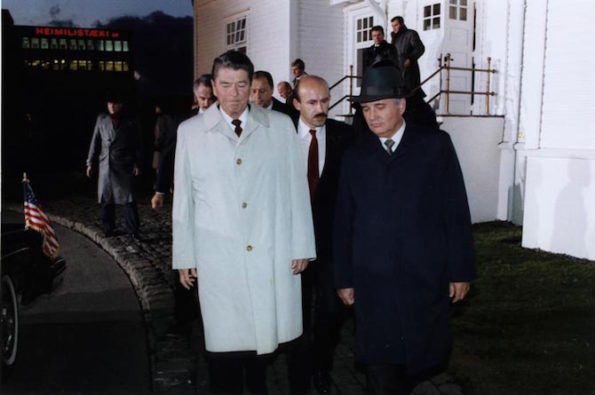Search
To search for an exact match, type the word or phrase you want in quotation marks.
A*DESK has been offering since 2002 contents about criticism and contemporary art. A*DESK has become consolidated thanks to all those who have believed in the project, all those who have followed us, debating, participating and collaborating. Many people have collaborated with A*DESK, and continue to do so. Their efforts, knowledge and belief in the project are what make it grow internationally. At A*DESK we have also generated work for over one hundred professionals in culture, from small collaborations with reviews and classes, to more prolonged and intense collaborations.
At A*DESK we believe in the need for free and universal access to culture and knowledge. We want to carry on being independent, remaining open to more ideas and opinions. If you believe in A*DESK, we need your backing to be able to continue. You can now participate in the project by supporting it. You can choose how much you want to contribute to the project.
You can decide how much you want to bring to the project.

“International understanding constitutes an important factor in decision of political questions.”
This was one of the phrases translated from Russian by a computer, in the first public demonstration of automatic translation (AT) in 1954 in New York. It doesn’t seem by chance that the translation was from Russian to English. If we consider that the United States and its struggle against the communism of the USSR had at that time a large part of the world divided and in confrontation. In general, the incomprehension of the enemy and a lack of knowledge of their ideas feeds speculation and reinforces the feeling of a threat. No doubt because of this, according to the Frenchman Leon Dostert (translator and interpreter involved in the first public demonstration of AT), one of the dreams driving the development of the means for high quality AT was of having a machine into which one could insert a Russian book to get one back in English. It’s evident that translation was the protagonist of this desire. Translation would be in the thick of the battlefield, mediating between one side and the other until some form of consensus, if one could call it that, was reached. It could offer the illusion that understanding between nations is possible.
There is nothing innocent in these displays of interest towards the so-called enemy culture: amidst the Russian texts with which the first tests of AT were made in America it wasn’t popular stories that stood out so much as scientific articles. On the other hand, in the video “On Translation: The Interview” by Antoni Muntadas, Pavel Palazchenko, the interpreter of Mijaíl Gorbachov between 1985 and 1991, explains that in his years as a student at the Institute of Foreign Languages in Moscow, those who wanted to translate from Russian to English had to keep abreast of the negotiations on arms control and dominate its vocabulary. Palazchenko moreover was in permanent contact with North American journalists who kept him informed about how the acts of the Soviet Government were interpreted in the media in the United States.
While all this went on, a large part of the theoretical reflections interested in the notions of difference and alterity began to see translation as a vehicular task of certain questions relating to the treatment of difference. Authors like Jacques Derrida, Susan Basnett, André Lefevere and Gayatri Spivak have written critically about translation and placed concepts such as “originality” and “fidelity” in quarantine, communicating that this practice goes beyond the simple shifting of a specific message between two equivalent languages. It’s a task that moves between different media, forms of expression, and discourses encompassed in a complex network of relations between diverse agents that condition it and give it form. For many, the idea of a definitive translation is not possible, because language, like the context, is constantly being modernised. There will always be another way of expressing what has been expressed before. In fact, Jorge Luís Borges argued that the translation of a work was never unjustified, for the fact that it implicitly brings a new temporality.
In 1992, a year after what’s considered to be the end of the Cold War and right at the start of the Yugoslav Wars, the Serbian artist Mladen Stilinovic placed in evidence the relations between power and language with a flag. A flag he had flutter with the phrase “An artist who can not speak English is no artist”. This summer it’s been possible to see it in the exhibition “A voz do tradutor” in the MARCO, of Vigo. An exhibition curated by Martin Waldmeier, who with the selection of works turns our gaze on the imperialistic character of the nations that have managed to make their languages hegemonic, like English.
Consequently, along with the work of Stilinovic, one could also see the video with the same name that the Kosovar artist Jakup Ferri, made in 2003. Where he talks to the camera endeavouring to explain in English, with only a basic grasp of the language, what it is to be an artist located so far from the nuclei of the West. What would have happened if the negotiations during the Cold War had gone the other way, and it had been the communist bloc that managed to defend its model and impose it everywhere? Would Russian be the hegemonic language on a world scale? Would the promise of a future for all emigrant people be for those who spoke Russian, as it is with English? The video “I Hate Karl Marx”, by Rainer Ganahl, shows a hypothetical future in which the dominant language is not Russian but Chinese. Made in a German city, it shows a person shouting at a bust of Karl Marx blaming him for the fact that Chinese culture has supplanted everything and that German has become a mere dialect. If as the Russian phrase translated into English in that first demonstration of AT said, international understanding constitutes an important factor in decision making, we can ask ourselves: in what way does the language into which the discourses of each nation are translated condition such decisions? Would everything have gone the way it did if instead of Gorbachev being the one with an interpreter translating Russian into English, it had been the words of George H.W. Bush or Ronald Reagan that were translated into the language of the enemy?

Anna Dot was born on a Sunday in April. She is from Torelló and works between two worlds, worlds that she cannot perceive as being in any way separate: one of artistic production and one of reflection, writing about contexts of art.
"A desk is a dangerous place from which to watch the world" (John Le Carré)